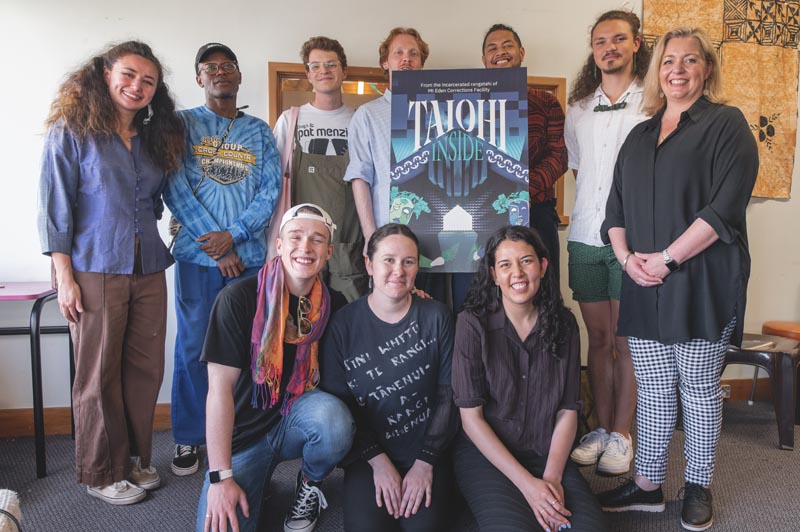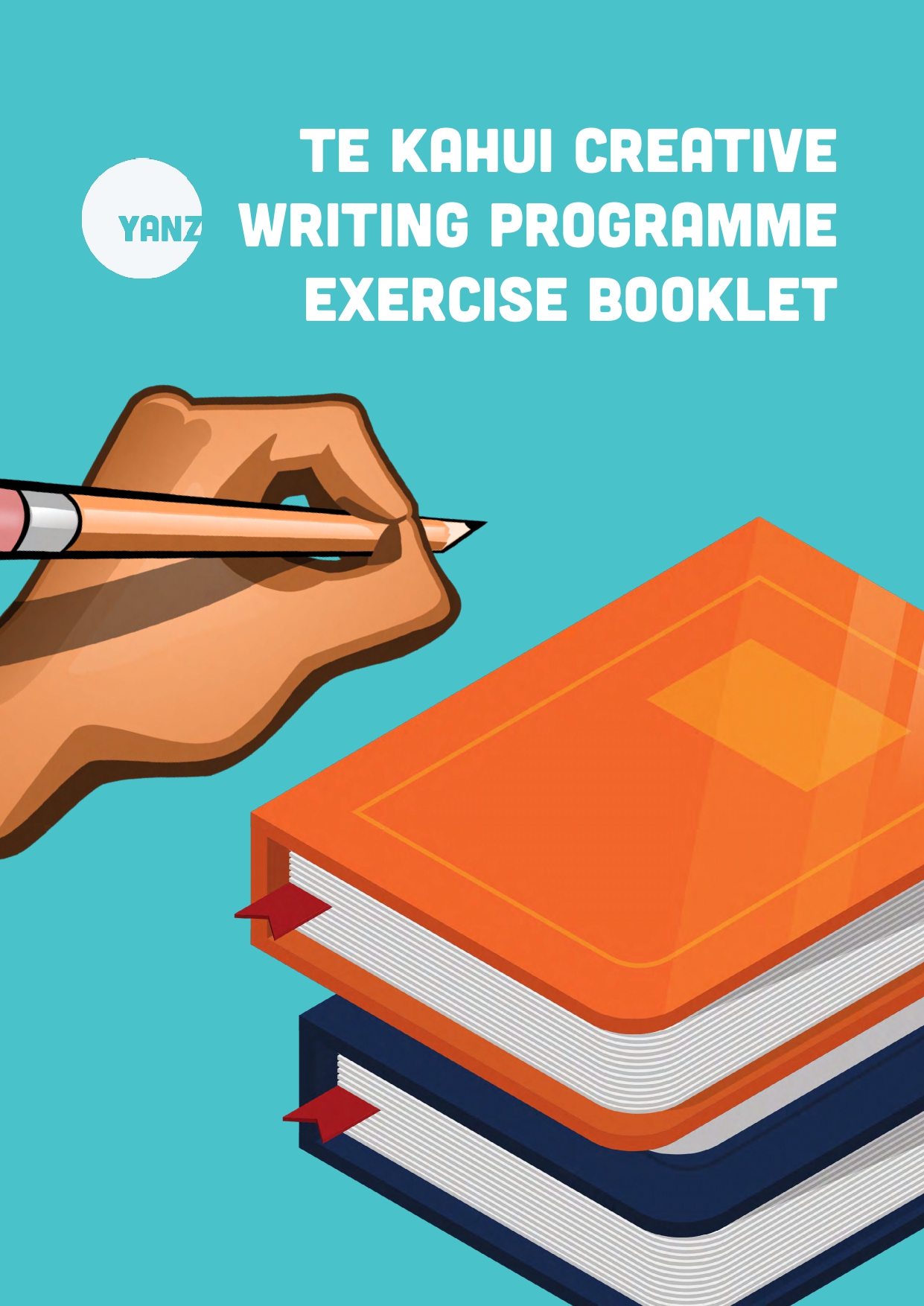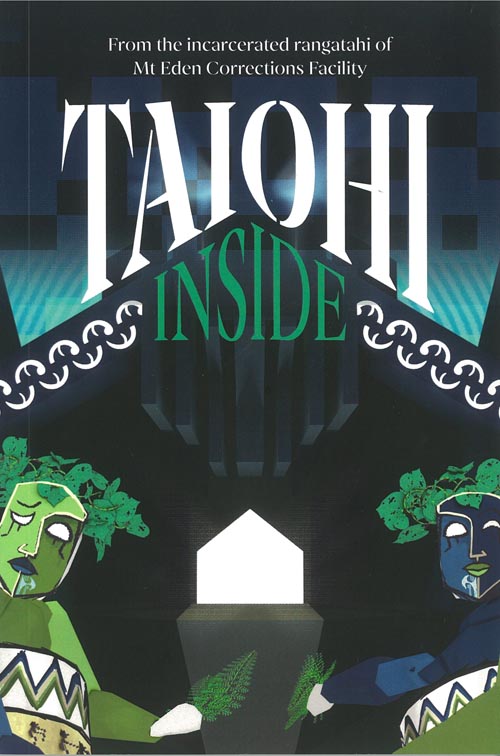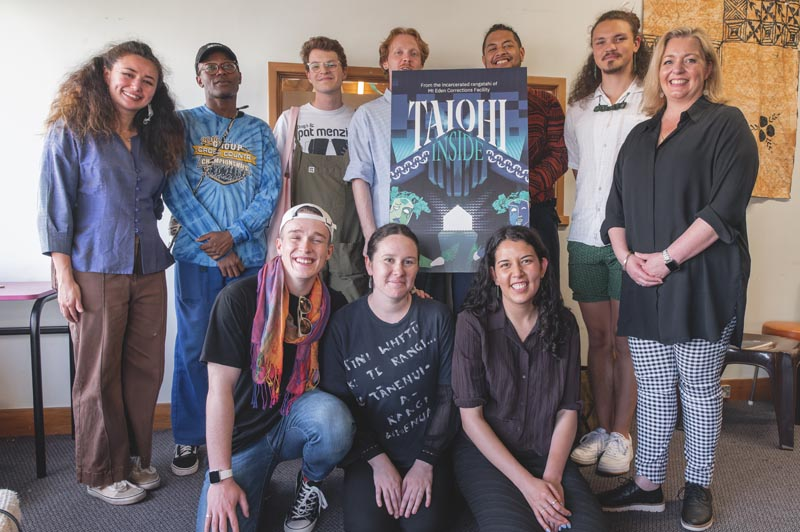“Everything we do is built with care, shaped by the needs and interests of our writers. We stand for story sovereignty and the right for young people to tell their stories in their own way, on their own terms,” says Ruby Macomber, Co-manager of Te Kāhui.
 Te Kāhui kaupapa is “by rangatahi, for rangatahi”, providing young people with skills, space and support to find their voice and gain confidence through poetry, spoken word, rap and prose writing.
Te Kāhui kaupapa is “by rangatahi, for rangatahi”, providing young people with skills, space and support to find their voice and gain confidence through poetry, spoken word, rap and prose writing.
It offers mentoring and runs workshops with rangatahi (aged 15 to 30) in a number of prisons, including Mount Eden Corrections Facility, Auckland Region Women’s Corrections Facility, Christchurch Women’s Prison and Tongariro Prison.
“At Te Kāhui, we believe that storytelling, creativity and artistic expression are for everyone – and that stories are potent tools to inspire social change and develop empathy, connection and empowerment,” Ruby says.
Programme set up by Zak Devey and Eric Soakai in 2019
Based in Tāmaki Makaurau, Te Kāhui Creative Writing Programme was set up by poets Zak Devey and Eric Soakai. They conducted their first creative writing workshop for rangatahi in Mount Eden Corrections Facility in 2019 but at the beginning of 2020 COVID-19 flipped everything on its head, and prisons, along with the rest of New Zealand, went into lockdown.
 In response to the lockdowns, Te Kāhui developed a remote programme using creative writing booklets. To date, there are five published booklets with a sixth in the publication pipeline, subject to funding.
In response to the lockdowns, Te Kāhui developed a remote programme using creative writing booklets. To date, there are five published booklets with a sixth in the publication pipeline, subject to funding.
The current Te Kāhui team includes writers, poets and performers with deep roots in their communities. The programme is co-led by Ruby Macomber (Ngāpuhi, Itu’ti’u) and Sherry Zhang (Fujian), with the 2019 New Zealand Slam Poetry Champion, Eric Soakai (Poutasi/Pangai), as the team’s facilitation lead. Acclaimed rapper/songwriter Phodiso Dintwe (Gaborone) leads the team’s creative strategy.
“The great thing about creative writing is that you don’t need much to get started,” Ruby says. “And yet the act of telling your story through spoken or written words helps us affirm our mana, recount our whakapapa and connect us with others.
“For us as a team, writing has been life-changing. So now, it’s a blessing to be able to help others explore their identity too by sharing our skills, running workshops and offering mentorship.”
Ruby says there is a growing body of research showing how creative writing and other artforms can support healing, personal growth and cognitive development, especially in places like prisons.
“When you mix this with culturally grounded practices – like how we hold space, respect one another and centre joy – it becomes a powerful force for growth, connection and change,” she says.
Care, compassion and indigeneity at the forefront
Ruby says Te Kāhui has grown hugely over the past five years, placing care, compassion and indigeneity at the forefront.
 With the support of Penguin Random House, Te Kāhui published an anthology of work by rangatahi in Mount Eden Corrections Facility in 2023. Called Taoiohi Inside, the anthology contains 34 pieces of poetry and prose written by 21 rangatahi.
With the support of Penguin Random House, Te Kāhui published an anthology of work by rangatahi in Mount Eden Corrections Facility in 2023. Called Taoiohi Inside, the anthology contains 34 pieces of poetry and prose written by 21 rangatahi.
The facilitators are now working with women in Christchurch Women’s Prison on a follow-up anthology called Wahine Inside.
A published writer, Ruby joined Te Kāhui in 2020. Asked to describe some key things she’s learned since then, she says:
“The young people we work with are some of this country's most potent creatives. Although this was no surprise to us, we’ve learned that storytelling often opens the door to deep, important conversations about power and self-determination.
“This work has also emphasised the value of pre- and post-workshop practices to ground workshop participants, settle nerves and be as present as possible. For some, just turning up is an act of bravery. For others, it’s reading their work aloud or asking for feedback on a draft.'
%20landscape.jpg) Ruby says it’s also taught them to really listen to what the participants need, what excites them, and what makes them feel safe and heard. "That’s where true accessibility and inclusion live: in relationships built on trust, care and flexibility.
Ruby says it’s also taught them to really listen to what the participants need, what excites them, and what makes them feel safe and heard. "That’s where true accessibility and inclusion live: in relationships built on trust, care and flexibility.
“And finally, we’ve learned the power of joy. When people feel free to be themselves and have fun with language, their creativity blooms. The best sessions are the ones where everyone feels ownership over what we’re doing – where the programme is shaped by their ideas, not just ours.
“That’s why we’re always changing things up – bringing in different texts, new facilitation styles and fresh activities. We keep it alive, vibrant and rooted in joy.”
Te Kāhui is one of the eight profiles featured in Te Ara ki Runga The Path Up, a guide published by Arts Access Aotearoa with funding through Manatū Taonga Ministry for Culture and Heritage’s Regeneration Fund. Ruby was one of 19 participants completing the first ten-week online training programme facilitated by Neil Wallace, Arts in Corrections Advisor, Arts Access Aotearoa. Read more about the course



